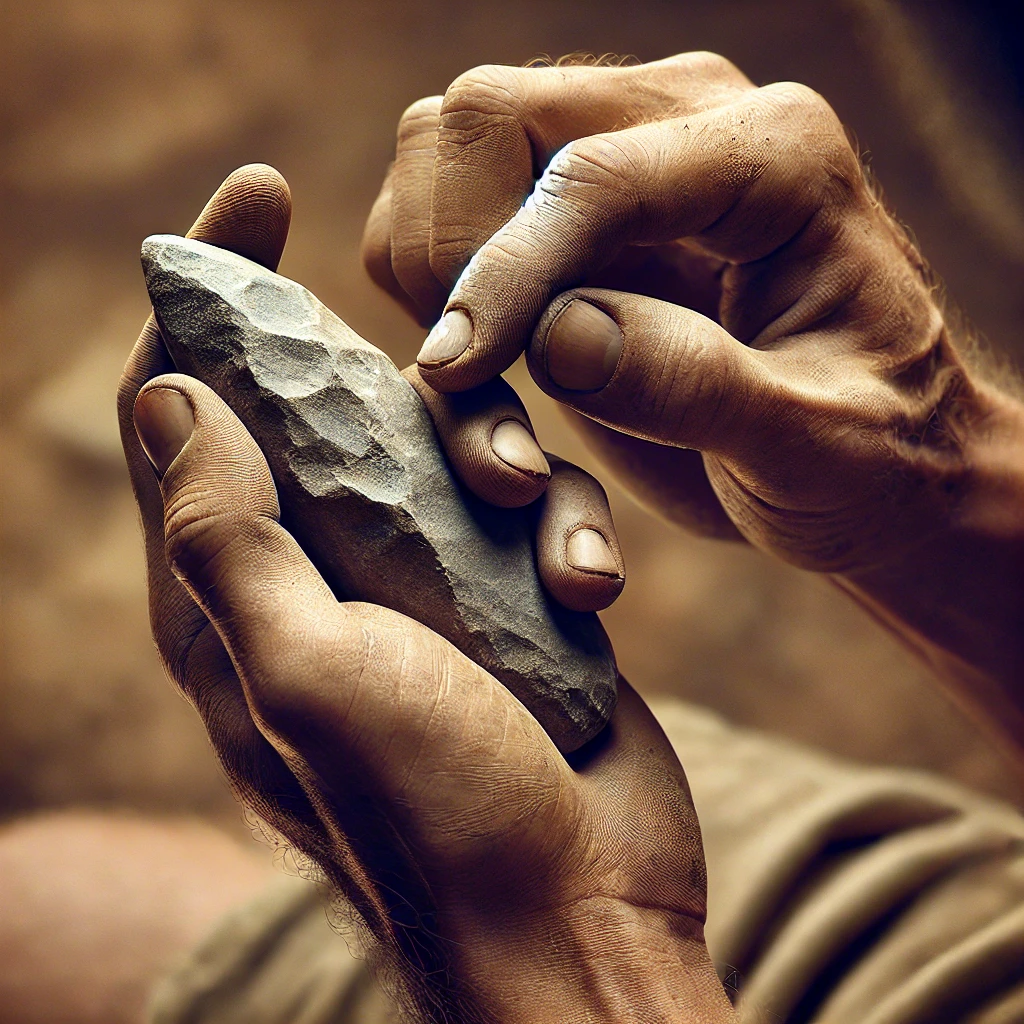When we think of a dog’s incredible abilities, their sense of smell often tops the list. A dog’s nose can detect scents at concentrations up to 100 million times lower than humans, allowing them to follow trails, detect hidden objects, and even sense medical conditions. But while dogs are the masters of smell, humans have their own superpower: a highly developed sense of touch. This sense is so powerful that it has played a crucial role in our evolution, particularly in our ability to invent and use tools.
The Extraordinary Human Sense of Touch
Our sense of touch is anchored in the skin, which is home to millions of sensory receptors. These receptors, known as mechanoreceptors, detect variations in pressure, texture, and temperature, sending rapid signals to the brain. The brain then interprets these signals, allowing us to experience the full spectrum of touch—from the smoothness of a polished stone to the sharp edge of a blade.
Touch is more than just a physical sensation; it’s a deeply emotional and cognitive experience. A gentle touch can communicate love, comfort, and trust, while a painful touch can trigger a fight-or-flight response. This dual nature of touch—its ability to both sense and convey complex emotions—makes it one of the most powerful senses we possess.
While a dog’s sense of smell is integral to their survival, our sense of touch has been pivotal in shaping human history. One of the most profound ways touch has influenced our evolution is through the invention and use of tools.
Imagine our ancestors, thousands of years ago, using their bare hands to break open nuts or shape stones. The sensitivity of their fingertips allowed them to detect subtle changes in texture and pressure, guiding them as they chipped away at rocks to create sharp edges or fashioned spears from wood. This tactile feedback was essential in determining whether a tool was effective or needed further refinement.
The precision of human touch also made it possible to manipulate materials with incredible dexterity. Our ancestors could feel the difference between a tool that was just “good enough” and one that was perfectly honed. This keen sense of touch enabled them to craft tools that were not only functional but also durable, leading to the development of more complex technologies over time.
As our sense of touch evolved, so too did our tools. The simple stone hand axes of early humans eventually gave way to more sophisticated instruments like knives, bows, and eventually, machines. The tactile feedback provided by these tools allowed humans to perform tasks with greater precision and efficiency, from hunting and farming to building and crafting.
In fact, the very act of creating tools has had a profound impact on human culture and society. The ability to shape and use tools allowed early humans to hunt more effectively, gather food more efficiently, and protect themselves from predators. This, in turn, led to the growth of communities and the rise of civilizations.
The invention of writing, art, and technology can all be traced back to our ancestors’ ability to manipulate materials with their hands. Whether it was the delicate carving of a symbol into stone or the careful assembly of gears in a machine, the human sense of touch was at the heart of these achievements.
Today, our sense of touch continues to play a vital role in technological advancement. Modern tools, from the fine-tipped instruments used in surgery to the responsive touchscreens on our devices, all rely on the precision of human touch. In fact, the development of haptic technology—systems that recreate the sense of touch through vibrations and force feedback—is opening new frontiers in virtual reality, robotics, and remote surgery.
Consider how touchscreens, for example, have revolutionized the way we interact with technology. The ability to manipulate digital objects through touch has made technology more intuitive and accessible, allowing us to navigate complex interfaces with the same ease as flipping through the pages of a book.
The Unsung Hero of Human Evolution
While dogs are celebrated for their extraordinary sense of smell, humans have a sensory power that is just as remarkable: the sense of touch. It’s a sense that has not only allowed us to experience the world in rich detail but also enabled us to shape it through the invention and use of tools. This tactile prowess has been a driving force behind human evolution, from the first stone tools to the advanced technologies of today.
So the next time you marvel at a dog’s ability to sniff out a hidden treat, take a moment to appreciate the incredible power of your own sense of touch—a power that has helped humans build civilizations, create art, and develop technologies that continue to shape our world.

















